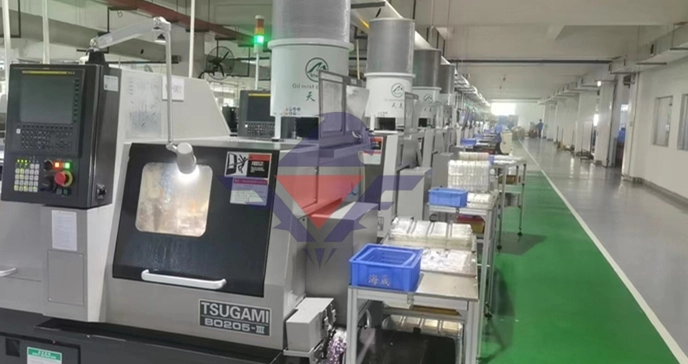
html
Swiss Machine Shop: Precision Engineering for Complex Components
In the world of precision manufacturing, Swiss machine shops stand out for their ability to produce highly accurate and complex components. Utilizing advanced Swiss-type lathes, these specialized facilities excel in creating small, intricate parts with tight tolerances, making them indispensable in industries such as medical, aerospace, and electronics.
The Swiss Machining Advantage
Swiss machining, also known as Swiss screw machining, offers several unique advantages over conventional CNC machining:
- Superior precision for small diameter parts (typically 0.5mm to 32mm)
- Exceptional surface finishes
- Ability to machine complex geometries in a single setup
- Reduced vibration and improved stability during cutting
- Higher production rates for small, precision components
Industries Served by Swiss Machine Shops
Swiss machine shops cater to a wide range of industries that demand high-precision components:
Medical Device Manufacturing
Keyword: Swiss Machine Shop
The medical industry relies heavily on Swiss machining for surgical instruments, implants, and diagnostic equipment components that require micron-level precision and biocompatible materials.
Aerospace and Defense
Critical aerospace components such as fuel system parts, sensors, and fasteners benefit from the Swiss machining process’s ability to maintain tight tolerances in challenging materials.
Electronics and Microtechnology
Connectors, pins, and other miniature electronic components are efficiently produced using Swiss-type lathes with their exceptional precision capabilities.
Choosing the Right Swiss Machine Shop
When selecting a Swiss machine shop for your precision components, consider these key factors:
- Experience with your specific industry requirements
- Range of materials they can machine (including exotic alloys and plastics)
- Quality control processes and certifications
- Secondary operations capabilities (heat treating, plating, etc.)
- Prototyping and production volume flexibility
Modern Swiss machine shops combine traditional precision with cutting-edge technology, including multi-axis CNC Swiss lathes, live tooling capabilities, and advanced inspection equipment. This combination allows them to produce components that meet the most demanding specifications while maintaining cost-effectiveness for both prototype and production runs.
As manufacturing requirements continue to push the boundaries of precision and complexity, Swiss machine shops remain at the forefront of delivering solutions for the most challenging component designs.